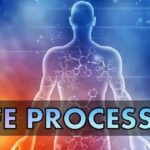Spotting an eating disorder might be more difficult than you think. To begin with, eating disorders are massively mischaracterized in popular culture and parlance.
When most people think of eating disorders, they usually think of young people (generally female) who refuse to eat out of a desire to be skinny. But that is a wrong way to think of it for a lot of reasons. To begin with, men and women develop eating disorders at similar rates.
People imagine young women as the primary sufferers of eating disorders because it fits so perfectly. They get to indulge in their sexist bias by characterizing young girls as superficial while also using it as a reason to explain why an eating disorder could never happen to them.
But an eating disorder—like any other mental illness—can happen to anyone. The idea of “it only happens to certain people” is the behavior we are talking about when we say things like, “There is a stigma against mental illness in the United States.”
So, let’s go over ten of the ways you can identify an eating disorder you might not know about.
click here – Exciting Technology Advancements in the CBD Industry
-
Distance Between Meals
It always pays to start an analysis by looking for the obvious. Consider how much time you put between your meals. Most people eat three meals a day not just out of habit, but also because a normal person tends to get hungry six hours after eating.
If you regularly go longer than that, then your body is probably accustomed to going some time without eating. That does not prove an eating disorder, but it can help one hide.
-
Low Calorie Intake
Another straightforward one that is hard to notice. Eating three meals is important, but if each of those meals is no more than a single component of a full meal, it might as well not be a meal.
Most people need 2000 calories per day in order to function. There is a lot of variation around that, but if you are eating less than 1500 calories, then you should think about why that is.
-
Low Macro Nutrient Intake
An eating disorder is not just a problem with eating at all. It can also be a problem with eating properly. There are three macro nutrients: Fats, carbs, and proteins. These are all pretty easy to get, but you can easily get a lot of one (particularly carbs) and skip over the others.
Doing so is a bad eating habit that is often characterized as an eating disorder, as it is usually the result of someone who is too nervous to explore outside certain foods.
-
Low Vitamins and Minerals
But let’s not forget about the other nutritional problems a person can experience due to lack of eating. Iron, calcium, and vitamin C are all critical to the human body. But if you find yourself eating certain foods constantly, you will also find yourself lacking in these things.
-
Trouble Waking Up
This is a bit more esoteric, but it is another indirect sign of an eating disorder. Plainly put, if you do not feed yourself properly then you are likely to have worse energy on waking.
click here – How to choose the ideal options for trading?
-
Feeling the Food in Your Stomach
This can be as much the cause of an eating disorder as it is the effect of an eating disorder. Essentially what is going on here is that the nerves around your stomach are responding to the clenching of your core that happens when you get stressed.
But since this causes discomfort near your stomach, as well as sensitivity to what is in your stomach, it can make people lose their appetite. Eventually, the feeling of eating and the feeling of being nervous become conflated, and the person loses their appetite faster.
-
Sensitivity to the Cold
In many eating disorders, the nerves on the outer layer of the skin get more sensitive due to the emergency the body declares when one is hungry. In short, your body is on alert due to hunger, but the eating disorder is causing you to ignore the hunger. This makes you more aware of the sensitivity to cold than to the hunger that causes that sensitivity.
-
Stress Eating
Not all eating disorders are about avoiding eating though. On the other side of the spectrum, binge eating and stress eating are eating disorders as well. Essentially, eating disorders are characterized by a lack of control. That lack of control works both ways.
So, if you find yourself putting food into your mouth as a way of lowering stress, then that can be as damaging of a habit as avoiding eating as a way of lowering stress. Because ultimately, the human body needs a certain amount of food. Not way more and not way less.
-
Counting Calories
It is pretty rare for someone to eat more calories than they need in a day, particularly if they are actually looking at the number of calories in their food. Yes, like we said, people need around 2000 calories per day. But that number assumes a person uses an average amount of energy.
Life is not lived on averages, so it is totally possible that you need more than that in order to be healthy. It is also possible you need less than that. Counting calories can be related to an eating disorder as both a cause and effect because it causes you to change your behavior for a bad reason.
-
Distorted Body Image
No matter what you see when you look in the mirror, you should remember one thing: Recognizing one’s own reflection is a product of evolution. It is part of self-identity.
That means it has a purely utilitarian reason for existing. So, if you have an emotional reaction to seeing yourself in the mirror, then something is not right. It is a sign of an eating disorder.
Conclusion
All of these things are bad habits by themselves. Only added up with each other do they become really bad. So, visit some helpful resources about seeking out solutions to these problems if they come up: https://www.oceanrecovery.com/addiction-treatment-programs/eating-disorder-treatment/






